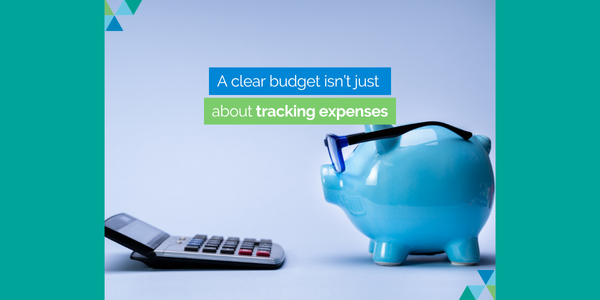What You Need to Know About 2023 Fringe Benefits Tax
On 31 March each year, the Fringe Benefits Tax (FBT) year ends. While this seems like a long way away at the moment, it is worth considering how FBT impacts you now.

With the ever-increasing budget deficits, the ATO will be reviewing whether all employers who should be paying FBT are paying it, and that they are paying the right amount. The ATO has recently announced that the ‘FBT gap’ is over
$1 billion and will be deploying resources for FBT compliance to close this gap.
To help you meet your FBT obligations, we’ve put together a list of essentials every employer needs to know about FBT and review every year, such as:
- Should I be registered for FBT?
- Should I lodge a FBT Return even if no FBT is payable?
- Key things you MUST do on 31 March 2023
- What is exempt from FBT?
- How can I reduce my FBT liability?
These questions are all answered for you below. We also have a number of specially prepared FBT Factsheets that you can request from us to help you better understand your FBT obligations as a business owner.
1. SHOULD YOU BE REGISTERED FOR FBT?
Generally, if you have employees (including Directors) and you provide them with cars, car parking, entertainment (food and drink), employee discounts, loans, or reimburse private expenses, then you are likely to be providing a fringe benefit and we will need to register your business for FBT.
2. SHOULD YOU LODGE AN FBT RETURN EVEN IF NO FBT IS PAYABLE?
Where no FBT is payable there is legally no need to lodge an FBT return, but should you lodge one anyway?
Our strong recommendation to you is yes, you should lodge an FBT Return if you provide benefits to employees, even if no FBT is payable.
This restricts the ATO’s audit window to only 3 years from the date of lodgement. Otherwise, the ATO is entitled to go back an unlimited number of years and audit your business and possibly find areas where they will charge you FBT and penalties.
We have compiled an FBT Factsheet that outlines some of the simple points that the ATO will review if you are selected for audit – How the ATO identifies potential audits. We have also prepared an FBT Factsheet that outlines why an FBT return is a good idea even where no FBT is payable – Why should you lodge a return.
3. KEY THINGS YOU MUST DO TO PREPARE FOR YOUR FBT RETURN
Whilst we strongly recommend that you register for FBT and if applicable lodge a Nil FBT Return, if you decide not to there is still key information that we need you to record as at 31 March. We will then rely on this when we complete your annual Financial Statements. Here’s a summary of what you need to do:
- During the year, ensure that all logbooks for all company vehicles are up-to-date and completed per ATO requirements. On 31 March, when the employees have finished their travel for the day request your team each take a photo of their vehicle odometer readings using their phones and email it the photo to you, or to a nominated person in your business to collate them all for you. Having these vehicle odometer readings for all business vehicles is vital to us being able if your FBT can be reduced by using the ‘operating cost’ method instead of the ‘statutory formula’ method.
- Carefully manage the private use of business cars, including the travel between home and work. The ATO is conducting a data matching program aimed at motor vehicles to capture benefits that aren't currently being reported through FBT. If significant variances are identified a full ATO audit may follow.
- During the year, keep a logbook of all meal entertainment expenses provided to employees, associates and clients and prepare a register that outlines the following for every event:
- The total cost (GST inclusive)
- How many employees were present and their names
- How many employees’ associates were present and their names
- How many clients were present (names not needed)
- The nature of the event (dinner, lunch, coffee, drinks, etc.)
4. WHAT ITEMS ARE EXEMPT FROM FBT?
The following items are unlikely to be subject to FBT: mobile phones, laptops, tablets, portable printers, protective clothing, tools of trade etc, or minor and infrequent benefits that are less than $300 in value.
To find out if you are eligible for the minor and infrequent benefit exemption – please ask us to send you our Applying the Minor & Infrequent Benefits Exemptions factsheet.
5. WAYS YOU CAN REDUCE YOUR FBT LIABILITY
Here are some ways in which you can reduce your FBT liability:
- replace your fringe benefits with cash salary;
- provide benefits that your employees would be entitled to claim as an income tax deduction if they had to pay for the benefits themselves;
- look at providing benefits that are exempt from FBT; and
- use employee contributions, for example, an employee paying for some of the operating costs of car fringe benefit such as fuel that you don't reimburse them for. You need to be aware that employee contributions will be deemed assessable income to you and subject to GST.
ASSOCIATE LEASES
If you would like further information on associate leases and whether they would be beneficial to your family to reduce your overall family level of tax, please contact us and we can help you.
FBT FACTSHEETS
Please let us know if you would like us to send you any or all of the following FBT Factsheets:
· What is a Car Fringe Benefit?
· Employee Business Cars – Tips & Traps
· Entertaining, Meals & FBT – Tips & Traps
· Using an Associate Lease to boost family income
· Minor and Infrequent Benefits
· How the ATO identifies potential audits
· Why you should lodge a FBT Return
· Workhorse Vehicles and new Safe Harbour provisions
Our team are looking forward to helping our clients meet their FBT obligations. If you’d like any further advice for growth, please contact one of our team at admin@wrightsca.com.au.










